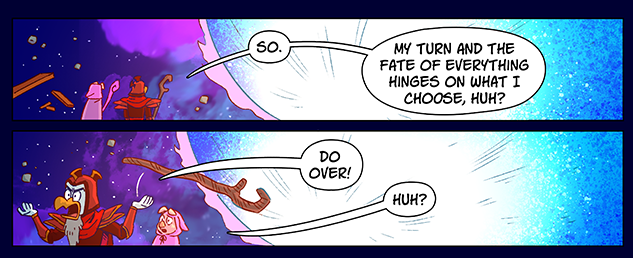I Have Gone This Far, and Quitting
I Have Gone This Far is a Solo Journaling RPG played with a deck of cards, a falling-block tower, and a means of recording your story. It uses the Wretched and Alone SRD, a system for creating bleak journaling games with established win and loss states. In I Have Gone This Far, You play the part of a charlatan and con-artist who has beguiled the locals into believing that you know something of demons. You’ve sold them charms, spells, and means of protecting themselves from an imagined threat…until suddenly your charge becomes possessed.
Now you must do what the demon tells you, committing terrible acts in the hope of protecting your charge’s soul. It is, quote: “a game about seeing how far you are willing to go to protect someone you love. It is about isolation, desperation and guilt.”
Fun!
One of the oft-repeated questions in reviews of Spec Ops: the Line is; “can/should games elicit guilt if you are only doing awful things because the game told you to?” Spec Ops takes almost a perverse glee in making you feel bad for doing the things that you have to do to advance the story. It works well because, as I said when referencing Ian Danskin’s Story Beats in my discussion of Mythic Mortals, games ask you to deal with your own actions instead of judging someone else’s. Even though the game guides you through its set-pieces, it is you who pulls the trigger. Whether Spec Ops, Shadow of the Colossus, Braid, Undertale, or Global Thermonuclear War; sometimes the only moral move is not to play.
When talking about Solo Games, I asked why we play games at all. To have fun, sure, but there are other reasons too, such as practicing important skills like teamwork. Flexing your intellect as you solve puzzles that will keep you sharp and able to adapt to any challenges in your own life. Sports test our physical abilities, puzzles test our mental abilities.
What do RPGs test? Some provide puzzles, others deal in math and probabilities, but pertinent to this game is the practicing of emotions. Teaching a child how to handle sorrow, anger, and fear productively is a difficult job at the best of times. Even in our older ages, we can still feel ill-equipped to handle grief, or betrayal, or socially awkward situations. It is the purview of games to explore every facet of humanity, physically, mentally, and emotionally.
How do you handle feeling guilty? What do you do when you’ve done something wrong? Do you make reparations? How do you? How can you, when the wrong was so great?
These concepts might all arise in any RPG, but rarely are they the focus of a game. What do you do when you know you are hurting someone, but only because it protects someone you love? How far will you go?
And there is a way to “win.” There is a way to banish the demon, to get the soul of your charge back in their body, and…then what? Find some way to atone? Try to forget? The game makes no assumptions.
And this victory is hard. You might play this game ten or twenty times before you finally reach what could be called a “good ending,” and even then you still have your journal, full to bursting with the piles of souls you claimed for your own selfish needs. Is that really a “good end?”
Why play this game at all? Why put yourself through it, a game of slaughtering innocents at the behest of a demon to save a soul that doesn’t even exist? Why write journal entry after journal entry, putting yourself in the shoes of someone who would do such horrible things, only to feel bad about it? Why invest yourself in that emotional labor?
The game is framed around the concept of throwing good money after bad, the idea that if you stop now, all that you’ve done will be for naught. The name of the game isn’t “It’s Too Much.” It’s not “I Made A Mistake.” It’s “I Have Gone This Far.” It is a game about continuing to do bad things in the hope it will all be worthwhile. Maybe this time it will be different. Maybe this card will save me. This die roll. This investment. This one-in-a-million scheme. I can’t stop now.

We play games to teach ourselves, to practice, to become better. A game that is structured around guilt, around failure to dig yourself out of your hole, suggests that it has always been for naught. You’re not here to win, you’re here to learn.
So the game builds you a parable, a morality play of a liar and a cheat who falls victim to their own lies, who is given a way out that is full of briers and thorns. The further down the path they walk, the more twisted and gnarled the path becomes. We can tell you this story, we could make you feel sympathy; or we could send you down that path yourself, let you feel the guilt weigh down on you, until you’d give anything for a better solution.
Why am I sure that the game hopes you will learn better? The game makes sure you know that there is way to finish the game that isn’t often mentioned in other RPGs. A safety valve of sorts. No matter how bad it gets, no matter how far you’ve gone, you can always just stop playing the game.
And its very telling that, as far as I Have Gone This Far is concerned, that’s not quitting.